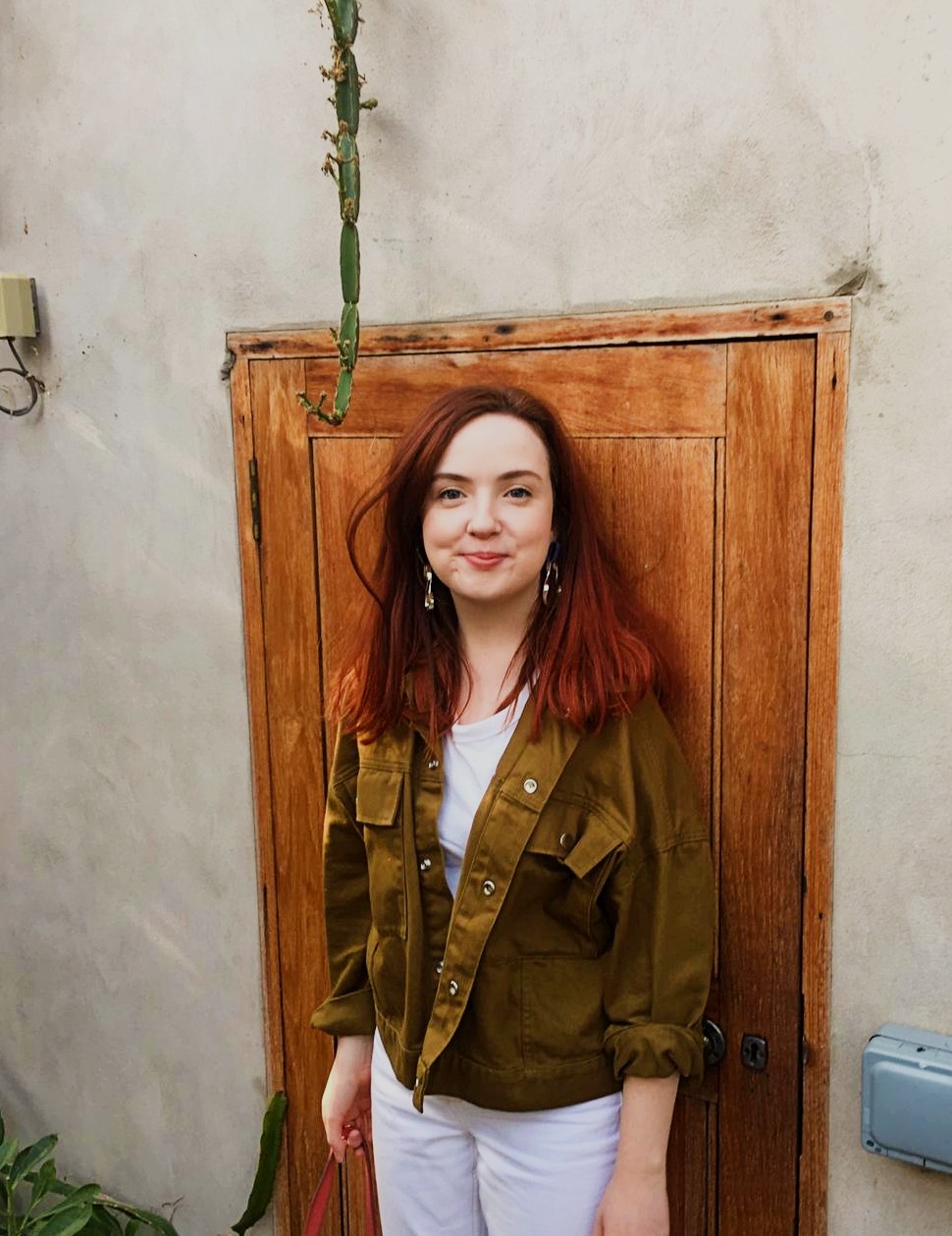Fashion Our Future: what you missed at Marie Claire and Kering’s landmark sustainability summit
On a sunny day in Paris, Marie Claire and Kering group's Fashion Our Future event assembled the industry's best (and best dressed) minds to plot a more sustainable future for the fashion industry.
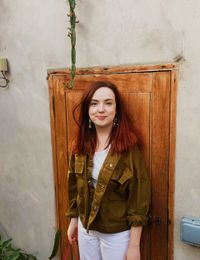
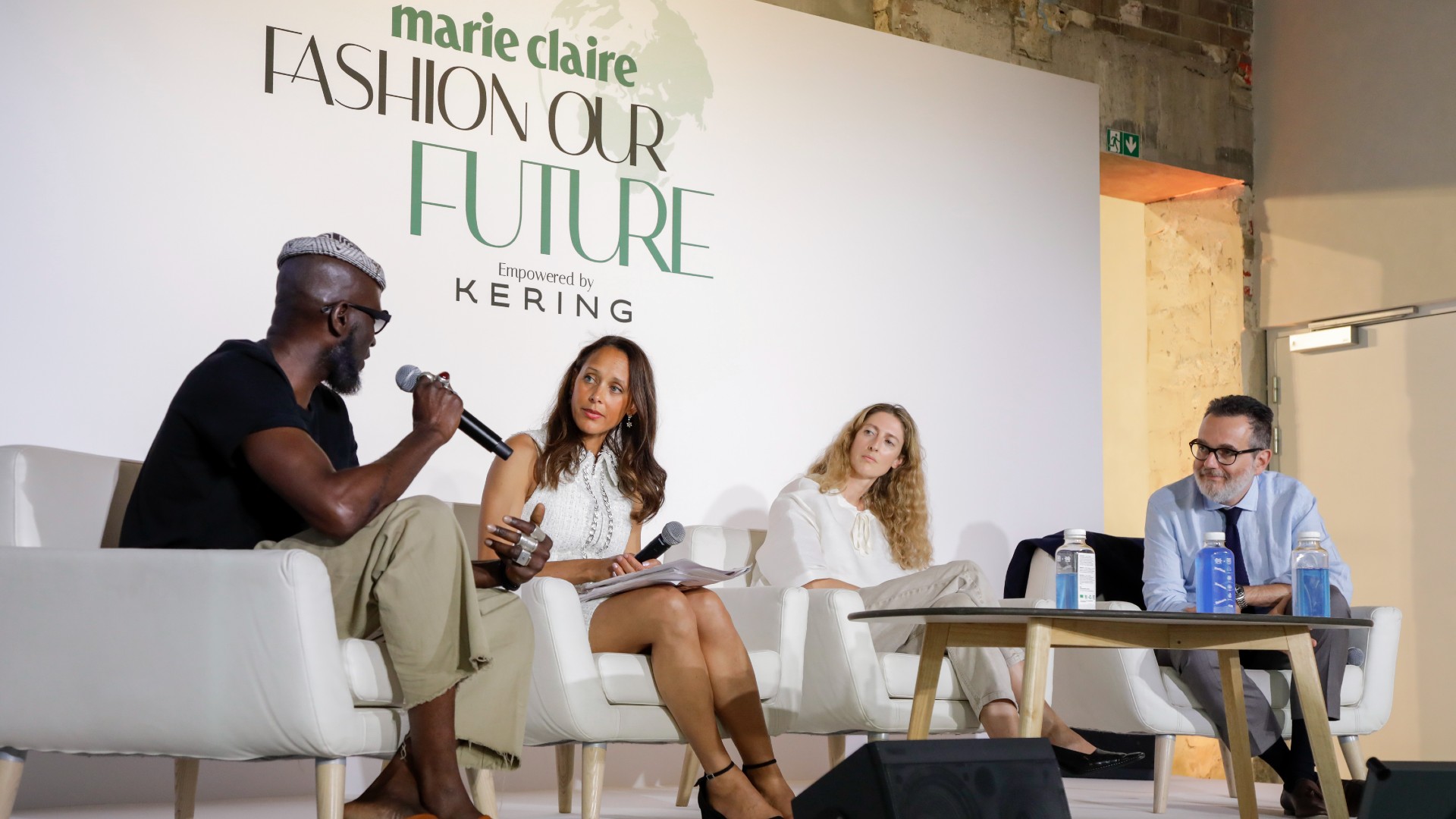
Celebrity news, beauty, fashion advice, and fascinating features, delivered straight to your inbox!
You are now subscribed
Your newsletter sign-up was successful
On a sunny day in Paris, Marie Claire and Kering group's Fashion Our Future event assembled the industry's best (and best dressed) minds to plot a more sustainable future for the fashion industry.
What happens when fashion’s most prestigious global group partners with one of its most influential global magazine brands? Naturally, a landmark international event that unpicks the big questions around designing a better fashion industry for tomorrow. (Think the G20 summit, but with better shoes.)
Drawing expertise from three continents, Marie Claire and Kering group’s Fashion Our Future was a seminal event that gathered experts, activists and influencers from all corners of the sector to discuss what the future holds for the $1.7 trillion fashion industry.
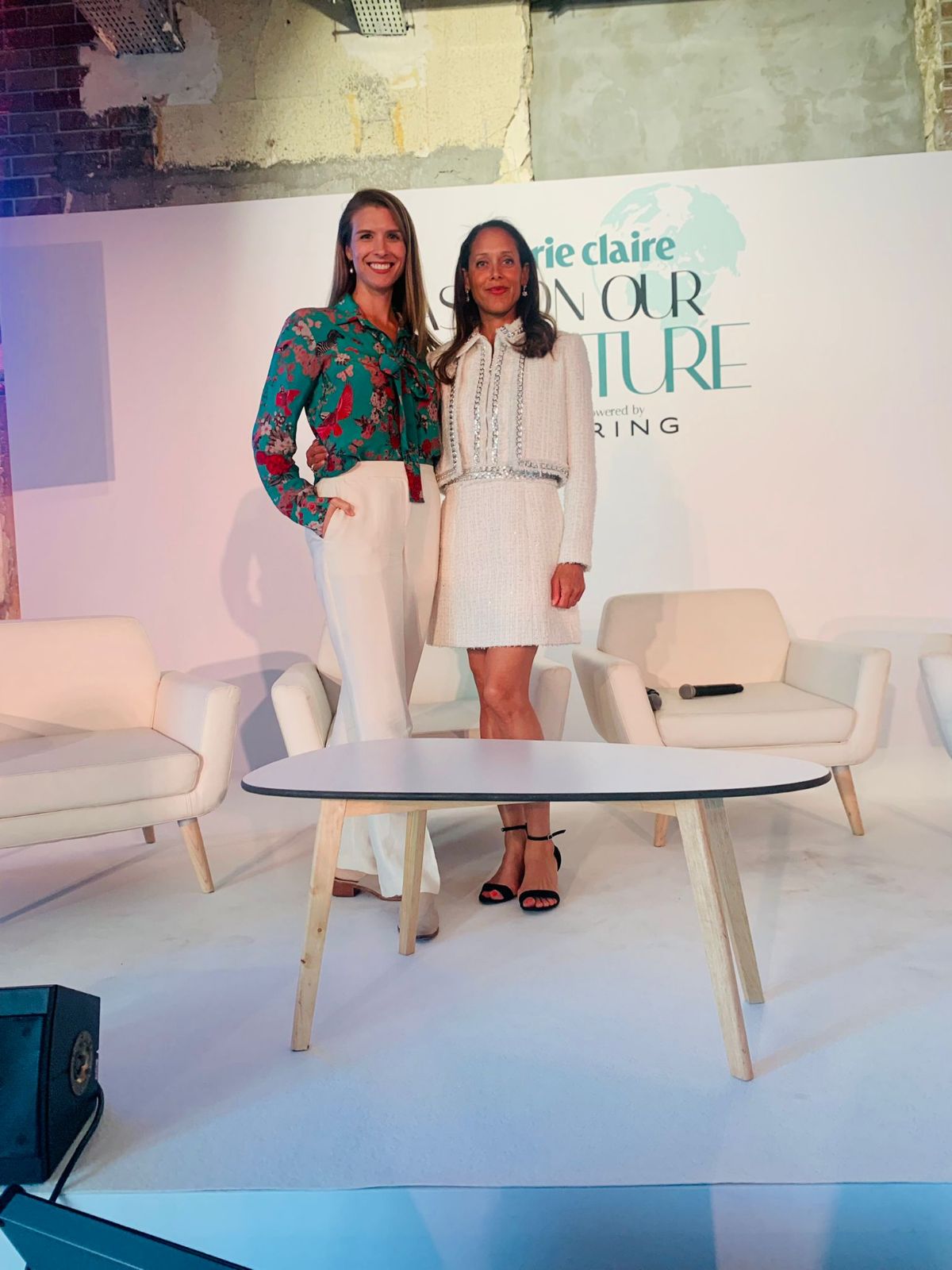
Taking place at La Caserne in Paris’ 10th arrondissement – the sweltering June temperatures a trite reminder of where our overheated planet is headed – Marie Claire UK’s Editor-in-Chief Andrea Thompson joined the Editor of Marie Claire France and the Acting Editor of Marie Claire US to chair panels with pioneering changemakers from leading fashion brands including Icicle, Gucci and Marche Noir who are offering design-led solutions to the problems fashion poses to the planet.
"Empowering women changes society from within"
"It’s kind of like gymnastics every day," ICICLE Creative Director Bénédicte Laloux admitted to a packed room. "If you think about modern life, you don’t want your garment to have certain properties. We spend a lot of time trying to find a solution for [creating clothes] in a natural way."
Also joining Andrea on the panel was Founder and Manager of the Ethical Fashion Initiative Simone Cipriani, who highlighted the role of socially conscious fashion in raising women in developing countries out of poverty.
"Climate change is bringing about extreme living conditions, which make it more difficult for women who face the burden of survival for their family – to find food, find fuel, and so on. It increases the social burden on them," he told the room.
Celebrity news, beauty, fashion advice, and fascinating features, delivered straight to your inbox!
A similar position was posited during the event’s opening panel discussion, led by Kering Chief Sustainability and Institutional Affairs Officer Marie-Claire Daveu, who was told by activist Aïssa Maïga, "What we do in the west has consequences for women and girls in Africa: the lack of water, the subsequent breakdown of families, and the threat to education." But Cipriani was quick to add that there are multiple strands to the complex relationship between climate change and women’s rights.
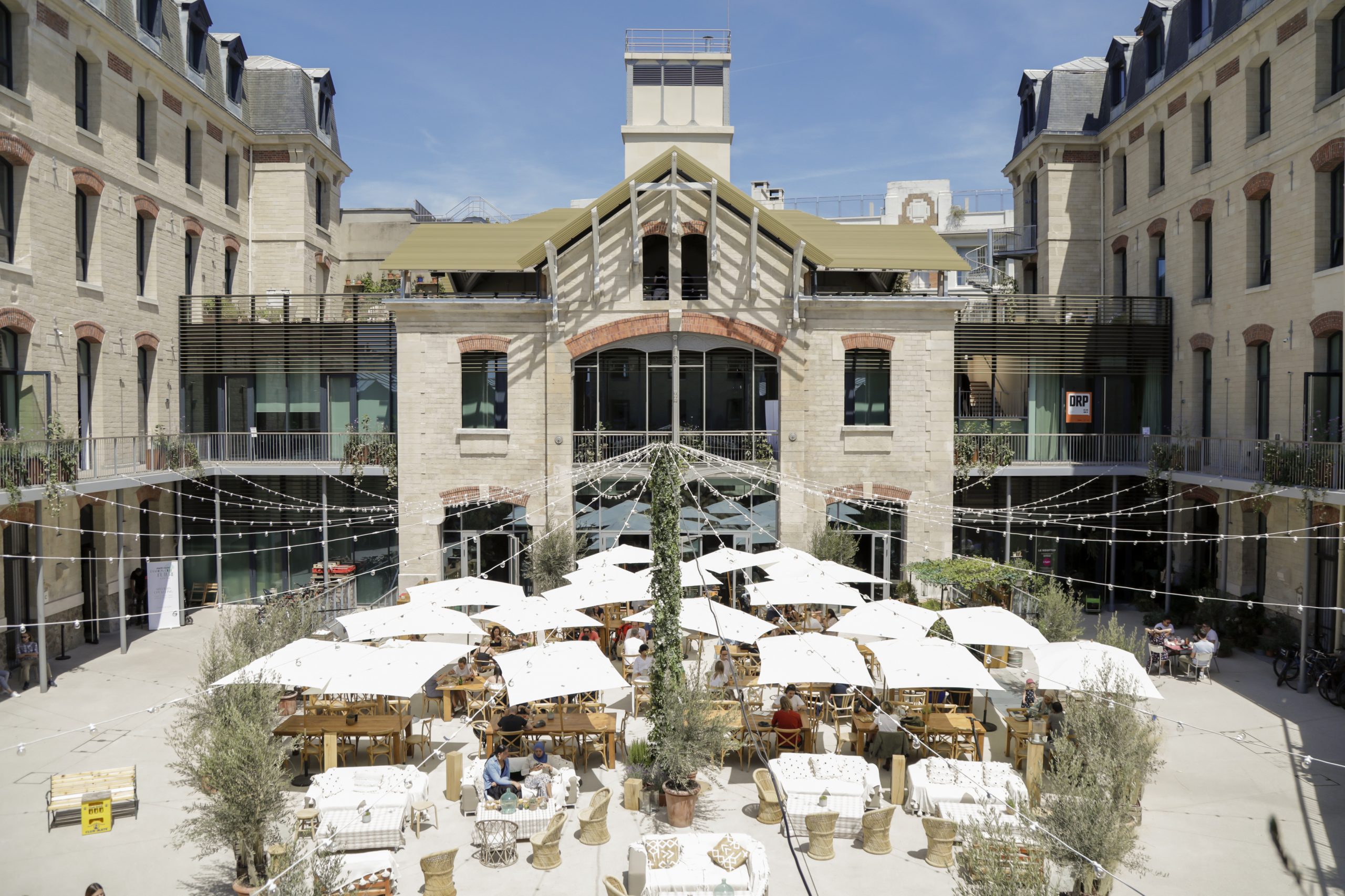
"There isn’t a single factor. You have environmental roots of the problem, you have social roots of the problem and they all combine together to create this situation. Our recipe is that of giving work, because work – dignified work, decent work, work that respects international law and labour rights – gives dignity to people, allows women in ‘traditional societies’ to flourish, and changes society from within."
Andrea’s third guest was Amah Ayivi, founder of menswear brand Marché Noir, who grew up in Togo in West Africa before moving his brand to the French capital.
Speaking of his formative years re-wearing and repairing, he told the panel, "Sustainability is part of our DNA in Africa – because of the lack of money, you need to find solutions. It’s a kind of legacy I apply to my brand."
But a world desensitised to fast fashion and expectant of instant gratification isn’t exactly an easy place to operate a small business.
"For me, it’s easy because it’s part of my vision. When I started my business, people asked me why I was doing my craftwork in kente – the process is very long and it’s woven fabric. I said: 'Because I want to work with my community.'"
"Each and every one of us has a part to play"
Indeed if the day’s discussions had an overriding theme, it was that of community – fostering it and harnessing it to create a more sustainable and ethical fashion industry.
"Each and every one of us has a part to play," Kering's Marie-Claire Daveu concluded the event's opening panel, while Veja co-founder and CEO Sébastien Kopp spoke of the communities in Brazil the brand works with when manufacturing its perennially popular sneakers.
Hammering home the importance of traceability in a brand's supply chain, he told Marie Claire International's Galia Loupan during a panel on ethical fashion: "We want to create a product that is respectful of human rights and of the planet. To do so, we went on the ground, in Brazil, to meet the cotton and rubber producers." The result? A socially and environmentally conscious brand that's beloved by stylish men and women the world over.
But don't go thinking the day was all talk. Workshops were at the centre of the event, with attendees invited to a masterclass on upcycling with SED NOVE studio founder Léopolda Contaux-Bellina between panels.
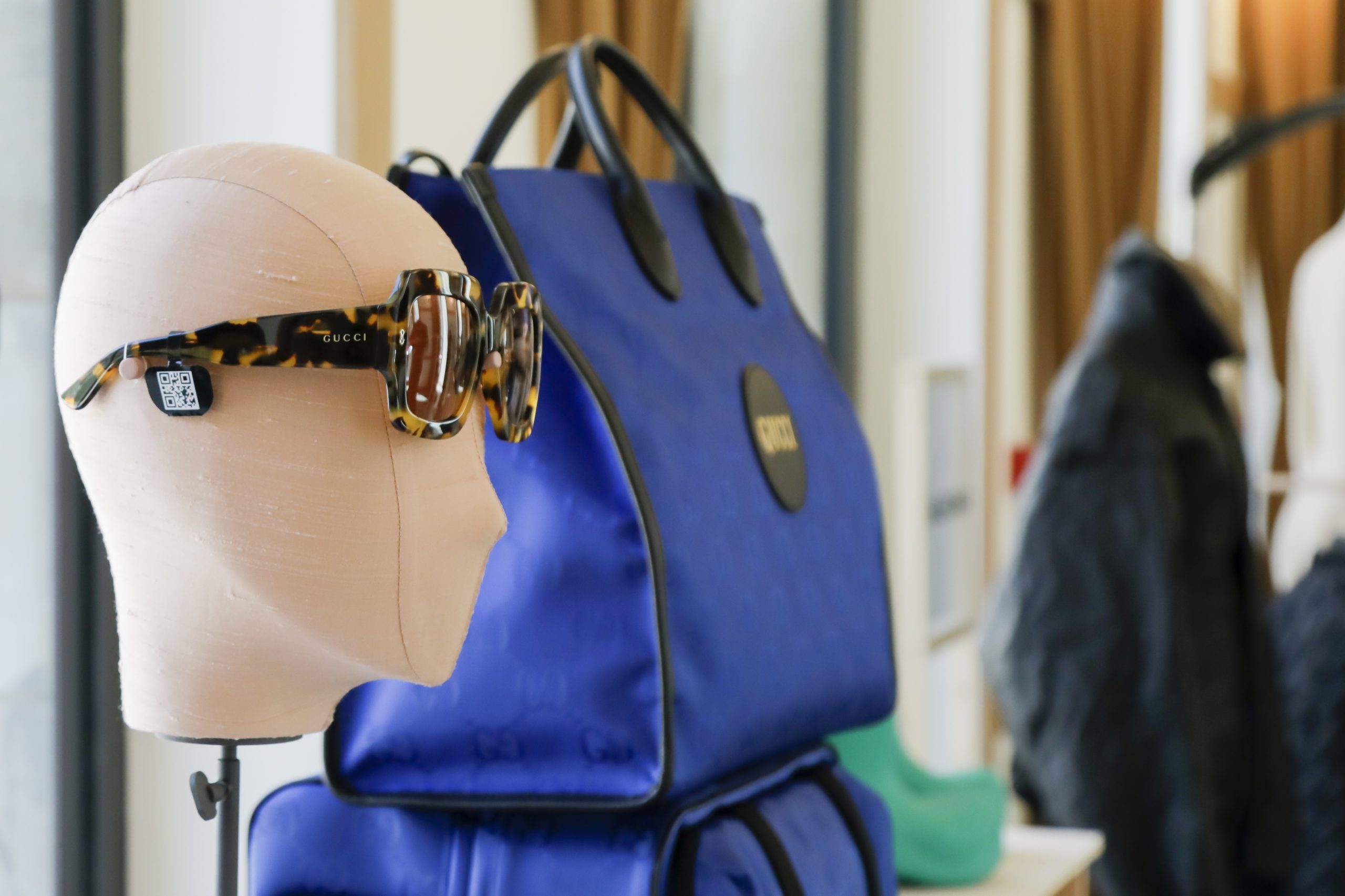
Nor did Kering shy away from presenting its own environmentally innovative projects, with spokesperson Yoann Régent, Head of Sustainable Sourcing and Nature Initiative for the South Gobi Cashmere Project, discussing the brand's efforts to champion animal welfare, biodiversity and the improvement of wages and living conditions for shepherds in Mongolia.
During a panel chaired by Danielle McNally, Executive Editor at Marie Claire US, Gucci's waste minimising Off The Grid collection was held up as an exemplar of a luxury brand committing to exacting real change in an industry historically obsessed with excess. "Our actions are articulated around circularity, regenerative agriculture and biodiversity," Antonella Centra, EVP General Counsel, Corporate Affairs and Sustainability at Gucci, told a captivated audience.
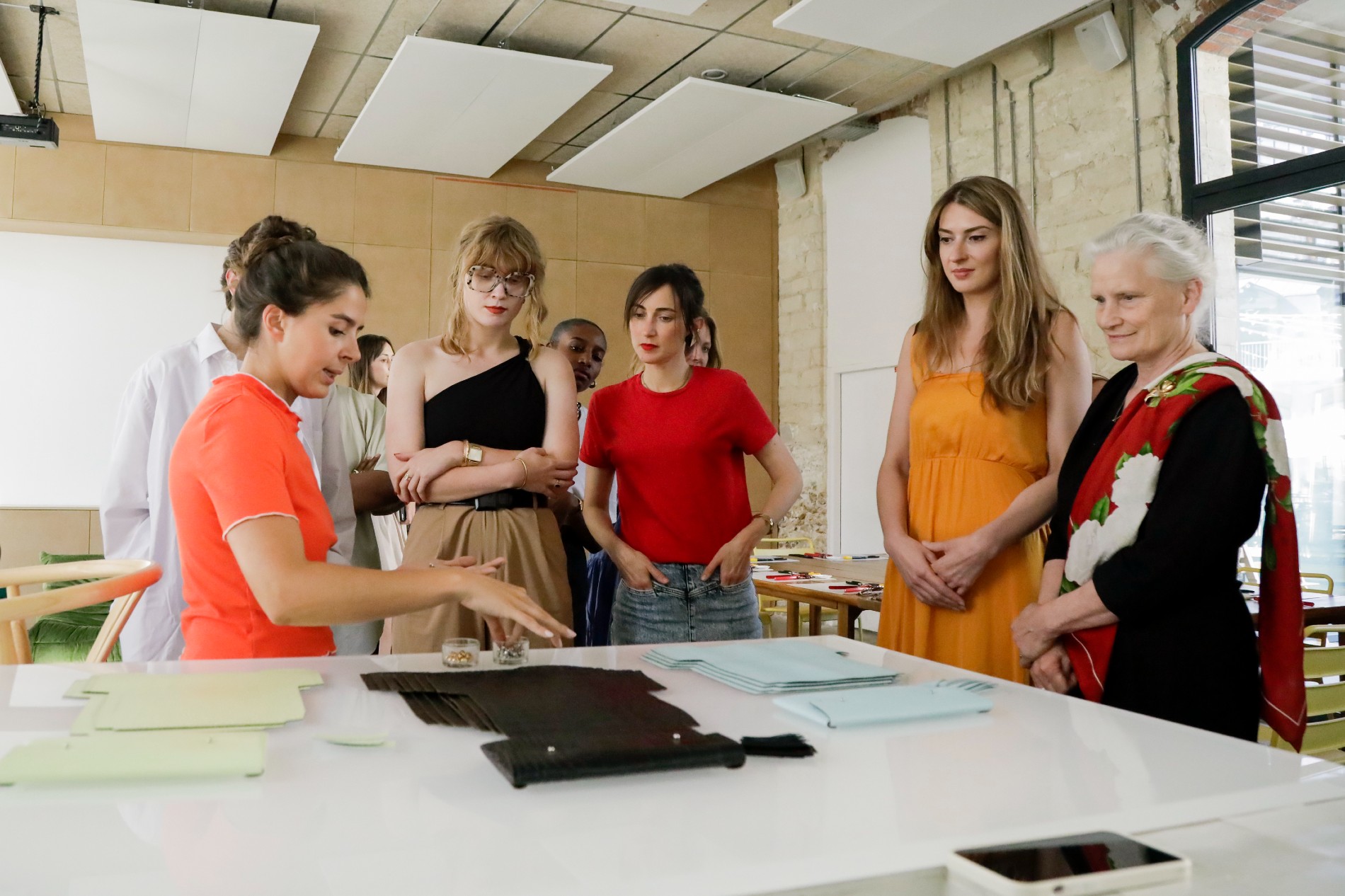
As the sun set on Paris and attendees and panellists alike returned home with a renewed sense of optimism and a barrage of brilliant ideas, the onus was on the fashion industry at large to stop turning a blind eye to the climate crisis. "If the industry doesn't begin to think differently," Ayivi concluded Andrea's panel, "nothing will change."
Kate McCusker is a freelance writer at Marie Claire UK, having joined the team in 2019. She studied fashion journalism at Central Saint Martins, and her byline has also appeared in Dezeen, British Vogue, The Times and woman&home. In no particular order, her big loves are: design, good fiction, bad reality shows and the risible interiors of celebrity houses.
